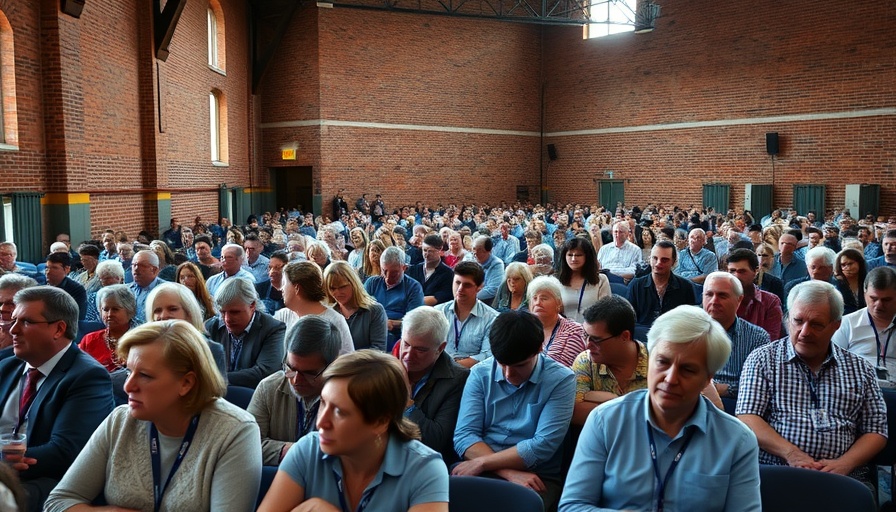
Convicted Traffickers Seek Legal Reprieve
The recent case of Joshlin Smith's abduction has sent shockwaves through South Africa, raising pressing questions about child safety and justice within the legal system. As the legal teams for the convicted kidnappers and traffickers prepare for their appeal, the stakes are high—not just for the parties involved, but for society as a whole. The awareness surrounding this case could be pivotal in addressing broader issues connected to crime, safety, and the child welfare system in the nation.
The Details of the Case
In a dramatic turn of events, the defense lawyers for Joshlin Smith’s kidnappers have filed notices for leave to appeal their life sentences. Kelly Smith, Joshlin’s mother, along with co-accused Steveno van Rhyn and Jacquen Appollis, received life imprisonment sentences for charges related to child trafficking and kidnapping. This high-profile case has stirred public sentiment and increased scrutiny on how the criminal justice system handles cases involving child safety.
Joshlin, who was just six years old at the time of her disappearance from the Middlepos informal settlement, remains missing. The emotional toll on her family, particularly her grandmother Amanda Daniels Smith, highlights the human tragedy behind legal discussions. Amanda continues to search for answers regarding her granddaughter's fate, a sentiment echoed by many families affected by similar tragedies.
The Legal Landscape
Judge Nathan Erasmus imposed a comprehensive sentence: life imprisonment for the trafficking and kidnapping charges, along with an additional ten years for kidnapping. The National Prosecuting Authority (NPA) has confirmed its readiness to fight the appeal vigorously, signaling a robust legal battle ahead. Advocate Aradhana Heeramun, representing the prosecution, has stated that they believe the original judgment was sound and without misdirection, reinforcing their commitment to uphold justice.
Implications for Child Trafficking Laws
This case has significant implications, not just for the individuals involved but also for the child protection framework in South Africa. Reports have shown a troubling trend of rising child abductions and trafficking, which have drawn national attention. Addressing these crises requires not only legal action but also comprehensive societal change. Enhanced prevention measures, support systems for at-risk families, and community engagement are essential to combat this growing issue.
The Role of Section 204 Witnesses
In discussions related to the case, the status of Section 204 witnesses like Lourentia Lombard has also emerged as a crucial topic. This provision allows witnesses to testify without facing prosecution in exchange for their cooperation. The prosecution's argument for Lombard’s indemnity will likely play a critical role in the unfolding trial stages. Such legal maneuvering raises essential questions about the role of cooperative witnesses in securing convictions in complex criminal cases.
Community Engagement in Justice
Community involvement can drive significant change in how laws are enforced, particularly in sensitive issues like child protection. Various civil society organizations are amplifying their call for greater accountability in child trafficking cases, using this case as a focal point for their demands. Performance of law enforcement agencies, the effectiveness of educational programs about child safety, and the enforcement of existing laws are all under scrutiny.
Future Directions and Conclusions
As the appeal process unfolds, it will be crucial for stakeholders to maintain pressure for transparency and accountability in the South African justice system. There is an urgent need for a robust framework that not only holds individuals accountable but also educates communities about the prevention of child trafficking and ensures that victims' voices are never overlooked.
Given the emotional and societal stakes involved, the outcome of this case could spark crucial conversations about crime prevention strategies and the efficacy of existing child protection laws. The hope is that as this story continues to develop, strong advocacy will push for necessary reforms, ensuring a safer environment for future generations.
 Add Row
Add Row  Add
Add 




Write A Comment